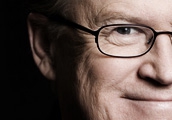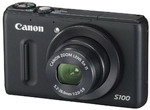Monday, August 2, 2010
Dvorak On Desktops
Posted by Hooch Tan in "Digital Home News" @ 02:00 PM
"I've always been the biggest proponent of powerful desktop computing and always felt like I was paddling against the tide. For the last decade I kept hearing about how the computer is becoming an appliance, and that mobile devices will rule the tech world. It's true, for surfing the Internet you can use anything from a dumb terminal to a phone. You do not need a quad-core machine with a two-terabyte drive."

Computers have been slowly turning into a commodity item. Some say it already is. As computing power becomes cheaper, we have seen the rise of computing appliances and mobile devices that can handle most consumer's day to day needs. Dvorak seems to go on a rant about how all this technology is now being used for the most trivial of applications, such as using an iPhone for a flashlight.
He goes so far as to re-introduce his idea of restricting computing, especially to those that have allowed their computers to be compromised. It reminds me of a sentiment I heard often when AOL started allowing access to the Internet. A lot of computer geeks were worried about the unwashed masses flooding the Internet with inane drivel and constant problems. Well, yes, there are a lot of corners on the Internet that would probably fit their description, but what is wrong with that? The whole concept smells like elitism to me.
I think we should be welcoming with those who embrace technology, in any capacity. Do some problems arise because of that? Sure. But that is just a reflection of humanity as a whole. Not every person needs to be an expert, or has to spend their entire life on the quest to cure cancer. I am just amazed at how technology has reached a point where it now fairly accessible for most of the modern world (and is slowly making inroads to developing nations) and that flashlight program just demonstrates that. It means that technology, computing appliances, smartphones and their kin have become accessible to everyone much like how literacy and the printed world help bring information and knowledge to everyone.












